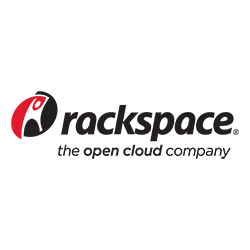Why Rackspace Is Suing The Most Notorious Patent Troll In America

Last week, a patent assertion entity (PAE) called Parallel Iron sued Rackspace and 11 other defendants in Delaware for allegedly infringing on a trio of patents that Parallel Iron says cover the use of the open source Hadoop Distributed File System (HDFS). This is the newest in a series of 23 similar suits Parallel Iron has filed in Delaware since last June, which is when Parallel Iron was forced to dismiss an earlier set of lawsuits on another patent it could not enforce. Parallel Iron is the latest in a string of shell companies created to do nothing more than assert patent-infringement claims as part of a typical patent troll scheme of pressuring companies to pay up or else face crippling litigation costs . At least that is what it looks like on the surface.
In actuality, it is a bit more complicated. Our dealings with this particular troll reach back to December 2010 when IP Navigation Group (IP Nav), as agent for a supposedly secret patent owner, now known as Parallel Iron, accused Rackspace of patent infringement. IP Nav told us that they could not divulge the details of their infringement claims – not even the patent numbers or the patent owner – unless we entered into a “forbearance agreement” – basically, an agreement that we would not sue them. IP Nav was worried that as soon as we found out what their patents and claims actually were, Rackspace would sue to invalidate their patents or for a declaration that Rackspace does not infringe. We were unwilling to enter into such a one-sided agreement, so we negotiated a mutual forbearance agreement that required either party to give 30 days’ notice before bringing suit.
IP Nav has used this trick before. Sending a letter like the one IP Nav sent Rackspace – and trying to pressure the target into a forbearance agreement – got IP Nav into hot water with a Wisconsin federal court in late 2011. The court decision, as reported by Techdirt, describes the tactics that IP Nav deploys, and uses literary references to Shakespeare and Chekov to excoriate IP Nav. It even cited the “Duck Test” – if it quacks like a troll, it probably is a troll. Search online for “IP Navigation Group.” You will find that this group’s only business is acquiring patents and suing companies.
Once again, the Duck Test holds true: walking, swimming, quacking, everything. True to form, Parallel Iron sued Rackspace in Delaware without providing any notice, breaking the agreement they insisted upon.
We aren’t going to take it. We have sued IP Nav and Parallel Iron in federal court in San Antonio, Texas, where our headquarters is located (see the complaint here). We are asking the court to award Rackspace damages for breach of contract, and to enter a declaratory judgment that Rackspace does not infringe Parallel Iron’s patents.
Meanwhile, IP Nav wears its designation as a patent assertion entity, or patent troll, as a badge of honor. It makes the laughable claim to be a “white hat” patent troll created to “give the little guy a chance.” This is tragic comedy at best. There are few trolls more notorious than IP Nav, and there is no such thing as a patent troll that has the best interests of small businesses in mind. Instead, IP Nav and Parallel Iron are acting in their own selfish interests and suffocating innovation, while stripping capital away from businesses both large and small. Everybody knows they are a duck – or should we say, a troll.
Patent trolls like IP Nav are a serious threat to business and to innovation. Patent trolls brazenly use questionable tactics to force settlements from legitimate businesses that are merely using computers and software as they are intended. These defendants, including most of America’s most innovative companies, are not copying patents or stealing from the patent holders. They often have no knowledge of these patents until they are served with a lawsuit. This is unjust.
At Rackspace, we have seen a 500 percent spike since 2010 in our legal spend combating patent trolls – we recently fought one and emerged victorious. To put the scope of the problem into perspective, a Boston University study of patent trolls, conducted last year, found that they cost the U.S. economy about $29 billion in 2011, up from $7 billion in 2005.
Until Congress reforms the patent laws, companies of all sizes and industries could – and likely will – find themselves in the crosshairs of a greedy patent troll looking for a quick cash-grab. No company is immune, and, sadly, small companies can’t afford to fight. If they don’t succumb to the troll’s demands by settling, they face certain ruin.
Our goal with this lawsuit is to highlight the tactics that IP Nav uses to divert hard-earned profits and precious capital from American businesses. This time, the patent troll should pay us.



No comments:
Post a Comment